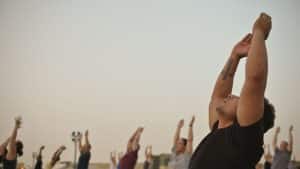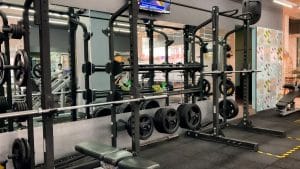Poor tracking of fitness progress might be the culprit for the lack of results. You step on the scale—it hasn’t moved. Frustration builds. Doubt creeps in. But what if the issue isn’t your workout or your willpower, but the way you’re tracking progress?
Many Christians striving to honor God with their bodies get discouraged, not from lack of effort, but from using the wrong measuring stick. Here’s why poor tracking kills fitness progress, and how to fix it with faith, facts, and focus. When you’re working on improving and tracking, it’s vital to ensure that poor tracking doesn’t hinder your fitness progress.
Why Tracking Matters for Transformation
Tracking is about stewardship. Just as we budget money to honor God, we must also track our health habits to steward the body He gave us. Numbers don’t lie—but the wrong numbers can mislead. Poor tracking can lead to misguided perceptions of fitness progress.
“The plans of the diligent lead surely to abundance.” — Proverbs 21:5
When we diligently track the right metrics, we multiply our results—and our motivation.
1. Are You Relying Only on the Scale?
Myth: Weight is the best indicator of progress.
Truth: The scale can fluctuate by 2–5 lbs per day due to water, food volume, and hormones.
Better Metrics to Track:
- Body measurements (waist, hips, chest)
- Progress photos (every 2–4 weeks)
- Strength gains (sets × reps × weight)
- Energy levels, sleep quality, and hunger cues
2. Are You Ignoring NEAT and Lifestyle Habits?
Non-Exercise Activity Thermogenesis (NEAT) includes walking, standing, and moving throughout the day. Many Christians overlook how daily habits outside the gym impact fat loss and muscle building. Poor attention to tracking these aspects could undermine your fitness progress.
Pro Tip:
Use a step tracker and aim for 7,000–10,000 steps/day. You’ll burn an extra 200–400 calories—enough to tip the scale in your favor.
3. Are You Tracking Without Purpose or Prayer?
Fitness tracking without a clear goal or spiritual alignment becomes legalistic and exhausting. If you let poor methods of tracking your fitness progress dominate, it can mislead your efforts.
Faith-Based Fix:
Before you log meals or reps, ask:
“Lord, help me align my health goals with Your will. Let my tracking be a tool—not a burden.”
This prayer reframes tracking as a form of worshipful discipline, not self-punishment.
4. Do You Stop Tracking When Progress Slows?
Many quit tracking during plateaus—when they should track more precisely. Without numbers, you’re guessing, not adjusting. Avoid poor tracking practices to accurately monitor fitness progress during slow periods.
Use these checkpoints weekly:
- Calories in vs. out
- Sleep hours (aim for 7–9)
- Training intensity (track sweat, breath, failure signs)
- Emotional eating or spiritual disconnects
5. Are You Tracking What You Can’t Control?
Don’t waste energy on vanity metrics like thigh gaps or six-pack timelines. Instead, track inputs that lead to outputs. Without focusing on possible metrics, poor tracking could compromise your fitness progress.
| Don’t Track | Track Instead |
|---|---|
| Daily weight | Weekly caloric average |
| Scale jumps | Strength improvements |
| Perfection | Consistency (Did I show up?) |
Mathematics of Fitness Tracking
Let’s say your goal is to lose 1 pound per week. Poor methods in tracking fitness progress can mislead, so it’s important to focus on accuracy.
- 1 lb = 3,500 calorie deficit
- Daily deficit needed = 500 calories
- Without tracking intake, you could easily overshoot by 200–300 calories daily via bites, sips, or misestimates—slashing your fat loss by 50% or more.
Key Takeaways
- Ditch the scale-only mindset—track habits and trends, not just weight.
- Include faith by praying over your goals and inviting God into your fitness routine.
- Focus on data that informs, not shames.
- Tracking should be a tool of stewardship, not obsession.
Read Next…
- Why Ignoring Sleep Can Wreck Your Muscle Gains and Fat Loss
- Couples Who Train Together: How Fitness Strengthens Romantic Bonds
- Tracking Progress Wrong? How Poor Metrics Can Derail Your Fitness Journey
- Avoiding Emotional Eating: Faith-Based Strategies That Work
- What Not to Do at the Gym: 7 Deadly Workout Sins
Subscribe now and get a 14-day free trial workout app for iPhone users.




